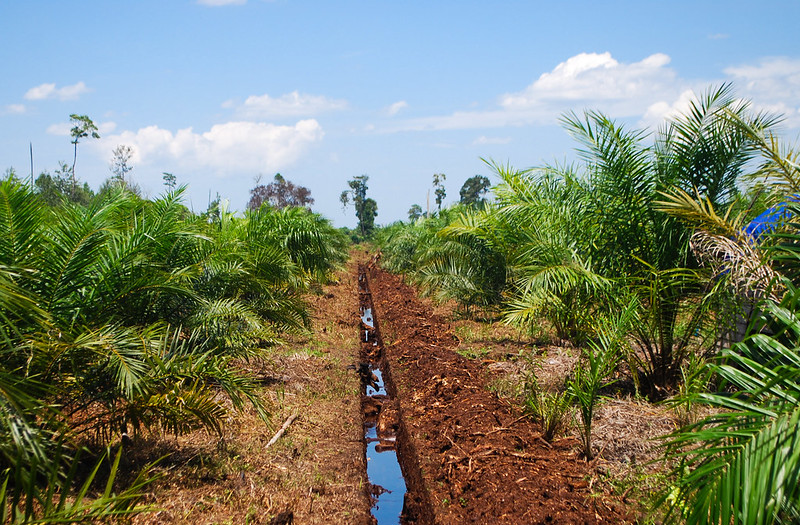
The study looked at the potential impact of the regulation on Kotawaringin Barat district in Central Kalimantan province, the second-largest palm oil-producing province in the country, with 800,000 hectares (nearly 2 million acres) of plantations.
The study also considered the potential impact of a similar due diligence law proposed by the U.K. on forest risk commodities including palm oil. It found that both the EU and U.K. regulations would help reduce deforestation in the region from 4,000 hectares (nearly 10,000 acres) annually to zero in less than 25 years, as well as slash CO2 emissions and maintain biodiversity.
On the flip side, however, they would also reduce palm oil production by 500,000 metric tons, which would lead to job losses in the sector. Overall, the palm oil economy in the district would shrink by 30% from current levels, or a loss of about $2 billion annually, according to the study.
“If we simulate [the impact of] the EU deforestation law, it will be able to reduce deforestation but at the cost of reducing the palm oil economy in that district,” said study lead author and CIFOR scientist Herry Purnomo.
And it’s not just Indonesian smallholders who will struggle under the regulation; European companies importing palm oil into the block will also face a high cost for compliance, the study says. This includes costs for establishing no deforestation, peat and exploitation (NDPE) commitments; traceability policies, including internal and external auditing; due diligence frameworks; and monitoring and verification mechanisms. Importers might also need to pay a premium for certified palm oil.
A 2022 report by Washington, D.C.-based sustainability risk analysis organization Chain Reaction Research (CRR) estimates the cost of compliance could add up to 3.5% of revenue. However, not complying with the EU regulation could result in $14.3 billion in losses for EU actors in the palm oil value chain, the report says.



















